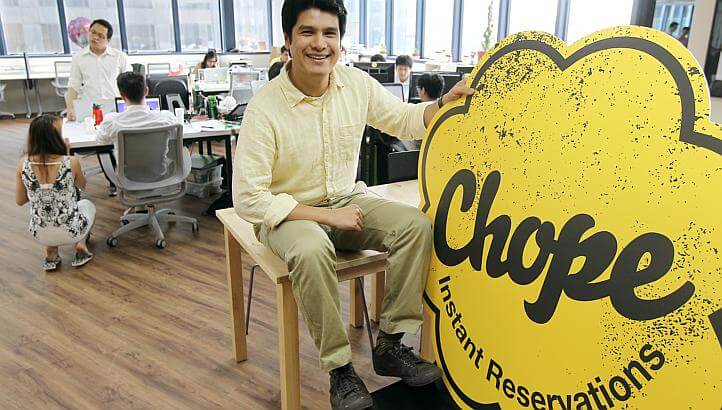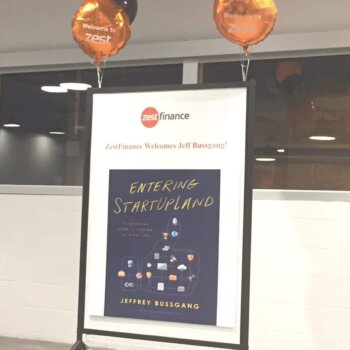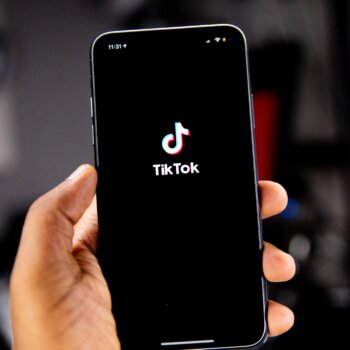The Asian Entrepreneur speaks with Arrif Ziaudeen, Founder of Chope, Singapore’s leading online restaurant reservation site.
Arrif is the Founder/CEO of Singapore’s leading online restaurant reservation site, Chope. In 3 years since launch Chope has sat over 5 million diners, received $4.4M of investment from VCs and Singapore Press Holdings and expanded into Hong Kong. Prior to founding Chope, Arrif worked in management consulting and private equity and obtained an MBA from Stanford GSB.
What exactly is Chope?
Chope is Asia’s leading online restaurant reservations booking platform. We help diners easily search for available tables across hundreds of restaurants instantly, and book them online for free.
How did you come up with the idea of Chope?
I noticed that people were booking everything else online – hotels, airlines, taxis and cinemas, but restaurant reservations were the ONLY time we ever have to pick up the phone, make sure to call during operating hours, etc. It felt like a hugely inefficient process that could be made simpler!!
How was it like managing the business since?
It’s a privilege to have stewarded Chope from an idea into a real, growing business, to see customers and users relying on us, and so many people working on the same vision. Of course there have been many difficult days & weeks as with any startup, but the months & years have been the best journey I could have hoped for!
Did you find anything particularly difficult during the startup? How did you overcome it?
I think funding is a particularly tough situation in Asia because of the nascent VC scene, which leads on to difficulties attracting the best talent, large scale customer acquisition, etc. Thankfully we had great numbers and a strong network of early investors who truly believed in the business and were very fortunate to have Singapore Press Holdings lead our recent round.
How was the initial reaction from the consumers? Did they buy into the product/service?
It was, and continues to be, a gradual change in user behavior. In our first week we only sat a dozen reservations, and it wasn’t easy or quick to grow that into the thousands that we seat today. I think it’s critical for early adopters who use it to refer friends, and get buy in via word-of-mouth.
Do you face a lot of competition in this industry? What is your strategy against your competition?
When we started numerous startups came into the space, but most of them have shut down as the industry matured and they realized how much of a long-game this is. I believe competition is a great sign that an idea’s time has come – it may seem like we’re competing against each other, but frankly we’re fighting together against phone calls!
How have you managed to stay relevant in this industry?
Good question. F&B is a very fast-moving industry, trends change seasonally and outlets are constantly opening & closing. We spend a lot of energy monitoring and signing-up new, popular restaurants so our users can rely on Chope as a guide, and access in-demand tables.
What are your future plans for Chope?
We firmly believe that in a few years online restaurant reservations will be commonplace all across Asia, and would like to spearhead that with regional expansion. We also believe the users are moving to mobile, so that’s our product focus will shift accordingly.
If you could start all over again, would you change anything about your approach?
If so, what? Not worried so much about things that never happened! I would also have tried more daring ideas earlier and ignored much of the skepticism.
What do you think about startups in Asia?
In my honest opinion, the biggest difference between Asian and US startups is our attitude to failure. Even though in principle we agree to it, there isn’t enough genuine belief of “learning-from-failure” let along celebrating it. I hope the next generation of startup entrepreneurs will come from those who have failed before, so that we can slowly turn that culture.
What are some personal principles or personal values that guide you and your career?
When I started I had 4 lessons from other successful entrepreneurs written on a whiteboard in my bedroom: “1. Keep it simple. 2. Do it now. 3. Never give up. 4. Get lucky.”
What is your definition of success?
The goalposts are constantly changing, there’s never going be a day when we have “achieved success”. But if you put a gun to my head i’d probably sum it up as “creating a large-scale, sustainable business”
Why did you decide to become an entrepreneur?
I believed strongly that online restaurant reservations needed to happen in Asia. After 2 years of waiting, nobody had done it still, so I decided to give it a shot myself because I thought it was a great idea.
In your opinion, what are the keys to entrepreneurial success?
Probably hard work and lots of luck, the same as every other career (entrepreneurship is, after all, also a career!)
Website: http://chope.com.sg/
Facebook: https://www.facebook.com/ChopeSG
LinkedIn: http://www.linkedin.com/company/chope






























